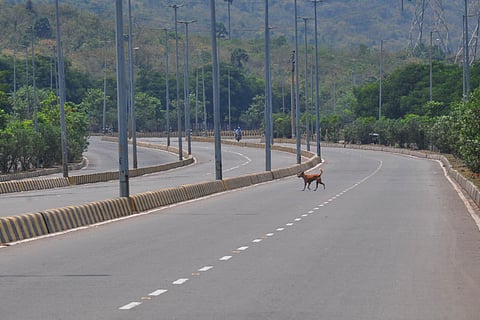

With the COVID-19 outbreak putting a kibosh on all the world’s plans for the foreseeable future, there is a dearth of industries that HAVEN’T been struggling. Among the hardest hit is naturally the travel and tourism industry with airlines, tour operators, and hotels suffering from a bleak present and uncertain future. One niche, within that niche itself, is travel writing, and those in the field are feeling that pinch. Satarupa Paul, an independent journalist and travel writer based in Delhi used to do at least one destination a month, if not more, saying,
“There have been times when I’ve travelled back to back on three different trips within a month.” Those halcyon days seem far behind now, with the whole world hunkered down. “In India, all sectors of travel, whether inbound, outbound or domestic, and across all verticals, have been severely paralysed. Even without any lockdown or travel restrictions in place, it’ll take months, if not years, for the travel industry to find its footing again,” says Paul. Raul Dias, a travel and food writer based in Mumbai, says, “I used to do at least 12 trips a year which meant one a month on average. Out of these, around 60 per cent would be international trips and 40 per cent trips within India.
I can’t even begin to comprehend, leave aside articulate the devastating repercussions of this pandemic on the travel and tourism industry from all angles, be it the recession to follow that most believe is inevitable where people may not be able to afford a luxury like travel to the fear psychosis of possible illness picked up travelling most will probably have post this.” Indeed, travel companies had begun preparing for the worst even before it reached our shores. “In the initial days, when the pandemic had just started to spread out from China, there was hope among travel organisations that perhaps their destinations would not be affected, and so travel plans were being made and bookings done as usual,” recalls Paul, adding, “But as the days progressed and the severity of the situation became clearer, with travel bans being increasingly put in place by several destinations, travel organisations began sending out advisories cautioning us against travelling to certain regions, or even going ahead and cancelling trips altogether.
” Delhi-based travel writer, author and poet Arvind Passey says, “I’ve always believed that travel organisations understand their responsible tourism well. During my recent tour of the Bhopal-Sanchi-Orchha-Khajuraho circuit, the availability of sanitisers, masks, and a healthy respect for social distancing was obvious.” However, all these steps were of little avail in the face of the inevitable: lockdowns on state and national levels, and a complete halt to travel. “For travel writers like us, this means no FAM trips, press junkets or collaborations for the next several months, which translates to no new material to write about.
Which, in turn, means no new writing commissions and no money coming in...” A big blow to freelancers and independent journalists, who depend on project-to-project payments, says Paul, adding that one option could be pitching old destinations and experiences that they might have already written about, but “creatively speaking, that isn’t the most exciting thought.” Dias rues, “I really can’t speak for others, but as far as I’m concerned it’s been everything from having five pre-planned trips (international as well as domestic) falling by the wayside to losing a little more than `30,000 in miscellaneous booking fees. And don’t even get me started on the figures of my projected income, or lack thereof, for the current month of April.” While the times certainly are a-punishing, there’s also hope of lessons being learned from our current situation. As Passey notes, “I hope we, as individuals, do not bounce back to our former unrestricted and irresponsible travel habits where a concern for the environment had gradually become secondary to convenience and self-gratification.”